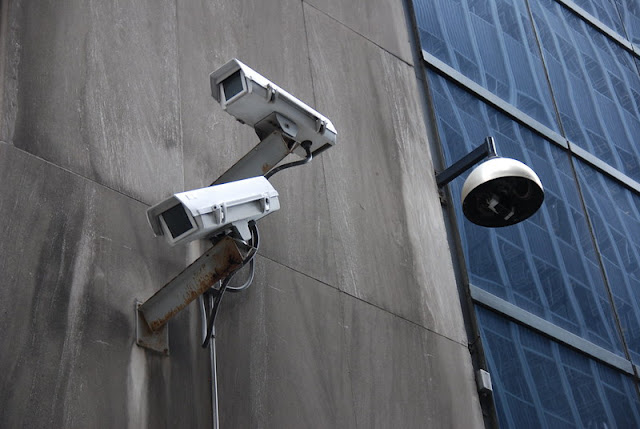OPINION: SGA Must Protect Student Privacy Amidst Growing Campus Surveillance
(Source: "Surveillance" by Jonathan McIntosh via Flickr)
UT-Tyler Police Department (UTTPD) recently gave an update on campus security to student government on Oct. 13. In the meeting, UTTPD revealed that the department now has approximately 600 security cameras throughout campus and now also license plate readers at every entrance. Doubtless, these measures are good for security, but are they good for students’ privacy? Given the police department’s growing surveillance apparatus, student government must protect students’ privacy.
To give an example from the meeting, Assistant Chief of Police Brandley Standerfer touted the license plate readers’ benefits by citing a case in which UTTPD used license plate reader information to identify the alleged perpetrator of the catalytic converter thefts that occurred last semester. (A catalytic converter is an automotive part that thieves remove from under the vehicle.) Standerfer said UTTPD used reader information to create a list of possible suspects based on the vehicles that entered and exited campus around the suspected time of the crimes.
So, for example, if the theft occurred around 2 a.m., then the police could search for vehicles that entered and exited campus, say between 1 a.m. and 3 a.m. UTTPD then shared this list with other law enforcement agencies.
Another agency ended up arresting the perpetrator after it identified the vehicle “based on the [license plate reader information] we got,” Standerfer said.
So the partnering agency identified the vehicle based on its suspected connection to the campus thefts, but then apparently an inquiry into any outstanding warrants discovered multiple warrants which then led to an arrest.
This situation illustrates the long arm of the law, which I think is a good thing. However, it also illustrates how consequential the information police collect through its surveillance network is. It can also happen without the individual’s consent.
When the police department can collect information without consent, and it brings such substantial consequences, then this naturally means that there is increasingly less information students can keep to themselves. In other words, it makes students vulnerable to misuse or unwarranted disadvantage.
In this case, this was a good thing that led to getting an allegedly bad actor off the streets. However, this new law enforcement surveillance capability brings up privacy concerns. It elicits interest in the individual’s ability to remain reasonably independent and not subject to intrusive state control. It is up to student government to protect students' privacy.
In this vein, SGA must monitor the extent of campus surveillance. It must advocate for ethical limits on the sharing of information with other agencies, along with the use of biometric data, such as facial recognition software in the campus security camera apparatus. SGA also must become informed on the issues of privacy as technological advancement leads to the state’s expanding abilities to surveil students. I don’t know all of the answers to these ethical questions, but to put it simply, it is time to have the conversation.
SGA must ensure that the campus security apparatus is helpful, but also serves student interests. With UT-Tyler’s growing on-campus surveillance apparatus, from license plate readers to its hundreds of security cameras, student government must ensure that these advances do not come at an unreasonable expense to student privacy.
Twitter: @jhescock12
Sign-up for my newsletter!
Feature image: "Surveillance" by Jonathan McIntosh via Flickr


.jpg)
Comments
Post a Comment